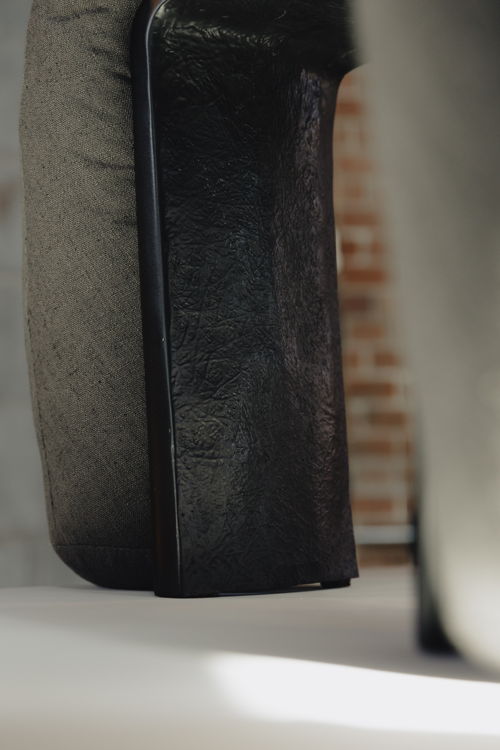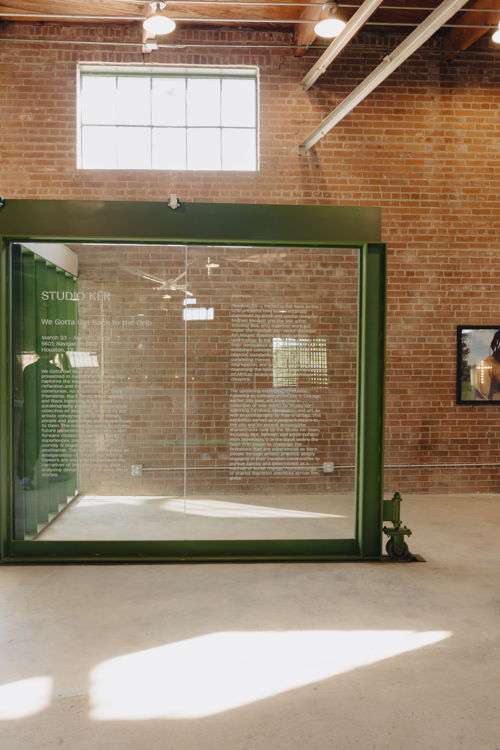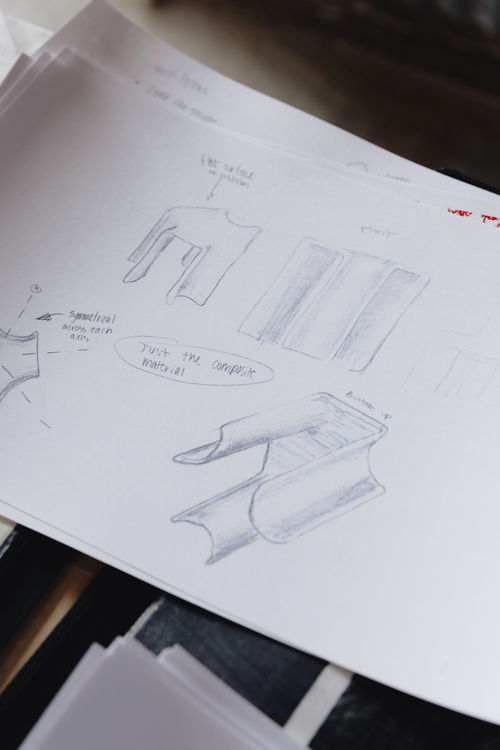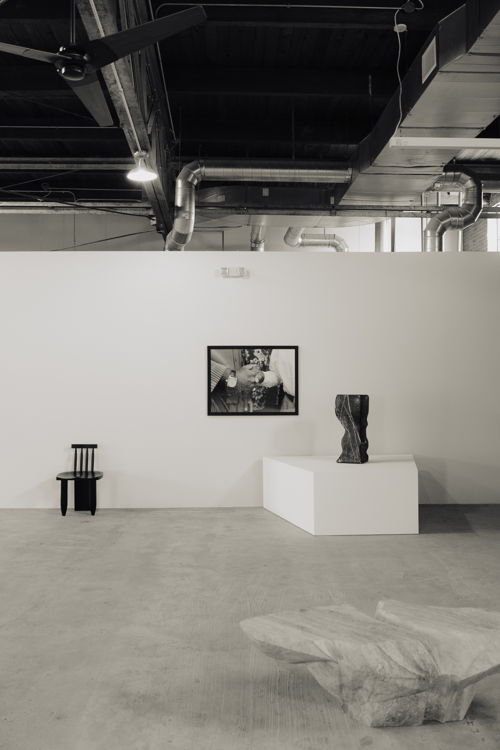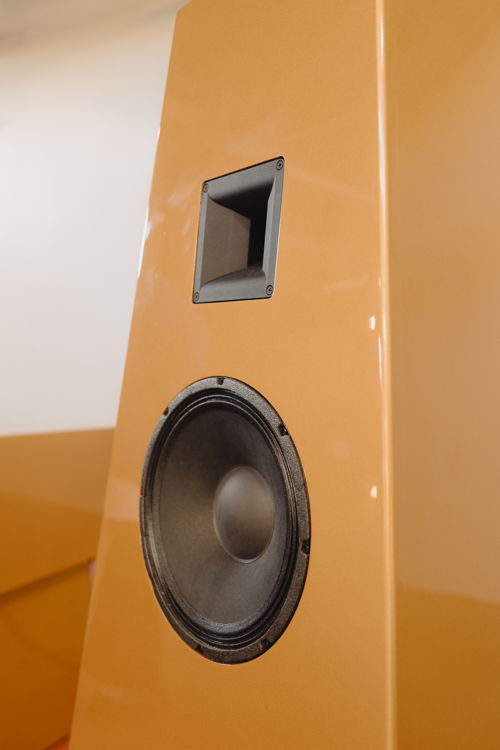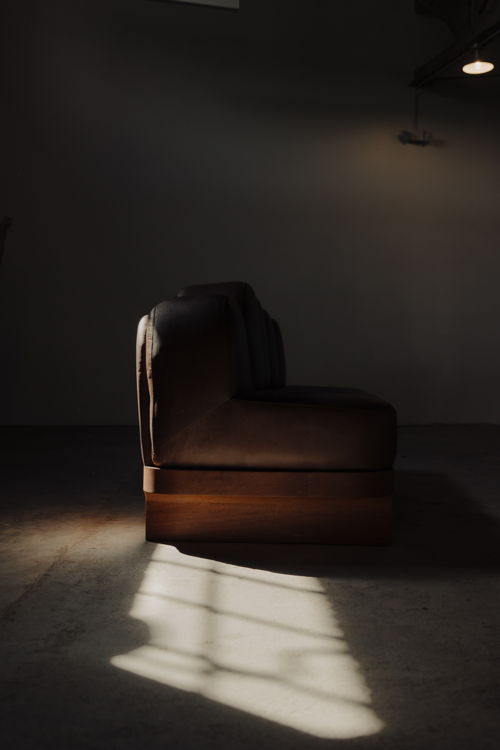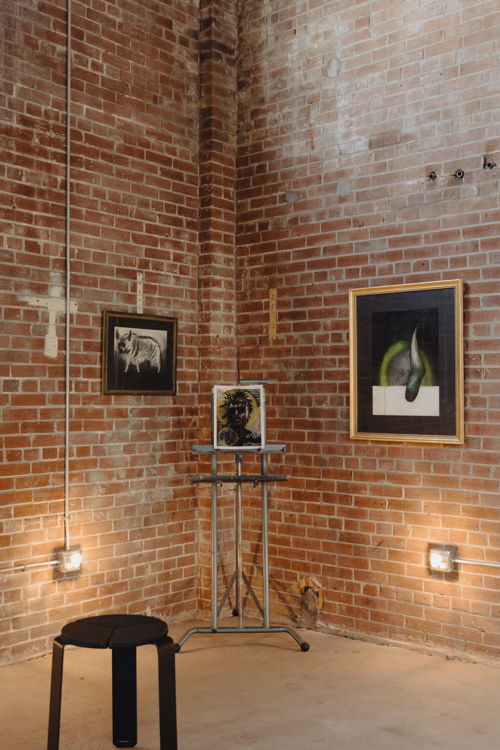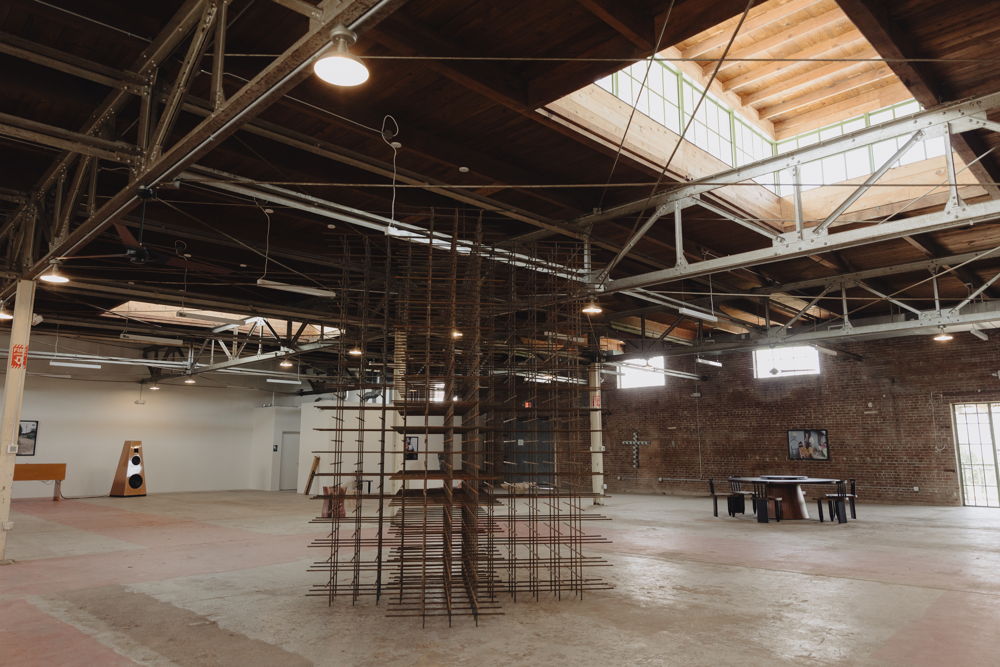Studio Kër’s We Gotta Get Back to the Crib Opens in Houston

Access Dropbox Press Kit
Houston, TX - We Gotta Get Back to the Crib presents new works originally conceived by artist and spatial designer Michael Bennett and the late artist Imhotep Blot, who together work(ed) under the moniker Kër—Wolof (Senegal) for ‘House.’ Inspired by both artists’ upbringings in the Coastal South and their Senegalese and Haitian roots, the exhibition consists of a collection of objects, installations, and furniture paralleling themes of intersectionality, segregation, and American ghettos while examining the identity and experiences of African Americans and the African diaspora.
The upcoming exhibition in Houston, following an intimate showcase in Chicago earlier this year, will showcase a collection of new works by Studio Kër spanning furniture, installation, and art, as well as photography by Pele-o-ali’ilagi. This exhibition serves as a poignant return to the city and its people, echoing the shared roots held by the Studio Kër team, including Blot, Bennett, and artist-curator Mich Stevenson. It is the place where the team first began to challenge the limitations that are experienced as Black people through artistic practice, deeply engaging in their Houston communities to pursue agency and determinism as a method of social change, representative of shared liberation practices across the globe.
Works on view include the Blocks series, a collection of contemporary stone furniture materiality, color and finishes connected to African and African Diaspora cultures, derived from primordial forms found throughout Earth’s natural landscape that instructed the first people’s stations for sitting, working, eating and storing. The “Pew” series, including a new Pew Sofa, are informed by the close proximity of Black bodies gathering in sacred space. The work identifies qualities from both church pew and sofa design by integrating the uniformity of a pew with the plasticity and softness of a sofa, reducing the space between one another to set the environment for close connection. The Gumbo chair with cushion and stool is a loosely anthropomorphized set inspired by the ubiquitous Monobloc white plastic chair, as well as by the genius of Black people’s humble traditions - in the coastal south, Gumbo recipes are sustained through oral tradition, with the stool being the first seat a child is offered to rest, sit, learn, or have their hair braided and cared for.
A new installation, titled “Is there any room for a N****”, challenges the viewer to confront the historical and contemporary implications of the racial epithet, inviting a discourse on societal prejudices and the spatial limitations imposed upon marginalized communities. The utilization of interlocked rebar creates a mirror-like distortion that projects the physical awareness of scarcity and the discomfort of confinement. Within this constraint viewers are compelled to navigate, negotiate, and perhaps even transcend the limitations of their perception, prompting an internal dialogue about the potential for change, resilience, and breaking free from oppressive structures. In this spatial experience, viewers can explore the tension between confinement and liberation and to question the extent to which society affords space for Black voices, bodies, and narratives.
Studio Kër also intends to develop improvisational connections to Houston’s local activists, community organizations and creative communities through programming. Houston is situated as a city whose cultural impact is held together by artists, writers and thinkers working in social creative practices in Houston’s BIPOC communities, threading the cultural fusion of the coastal south into music, culinary arts, fashion and design. Like charting improvisational jazz, these movements and their organic interconnection keep a pulse on the city making it possible for Houston to remain a place of refuge. A series of programs centering themes of family, determinism, land and resuscitation of shared values present in the works will be announced for open collaboration at the exhibition’s opening, in order to magnetize connections in real time and convene on what it means to be in Houston at this time and why this time is so significant. Programming at the exhibition closing will include a musical performance from Michael Bennett as well as a presentation of unreleased experimental music composition from Imhotep Blot during the exhibition.
We Gotta Get Back to the Crib, presented in memory of Imhotep Blot, captures the essence of solitary reflection and the strength of communion. An examination of Black friendship, Black family, Black agency, and Black ingenuity, it is a visual autobiography penned by a committed collection of designers, architects and artists concerned about the things, people and places that matter the most to them. The exhibition seeks to inform future generations, giving them a path forward rooted in collective Black experiences, emphasizing that the journey is ongoing and with no destination. The collection embodies an amalgamation of culture and history. Viewers are asked to engage with the narratives of intersectionality while analyzing design’s role in shaping these stories.
On view: March 23 - April 21, 2024
Time: Wednesday - Saturday, 10am - 6pm
Location: 5601 Navigation Blvd, Houston, TX 77011
Photography by John Meza:
Images from inaugural Chicago showcase can be found here.

Access Dropbox Press Kit


